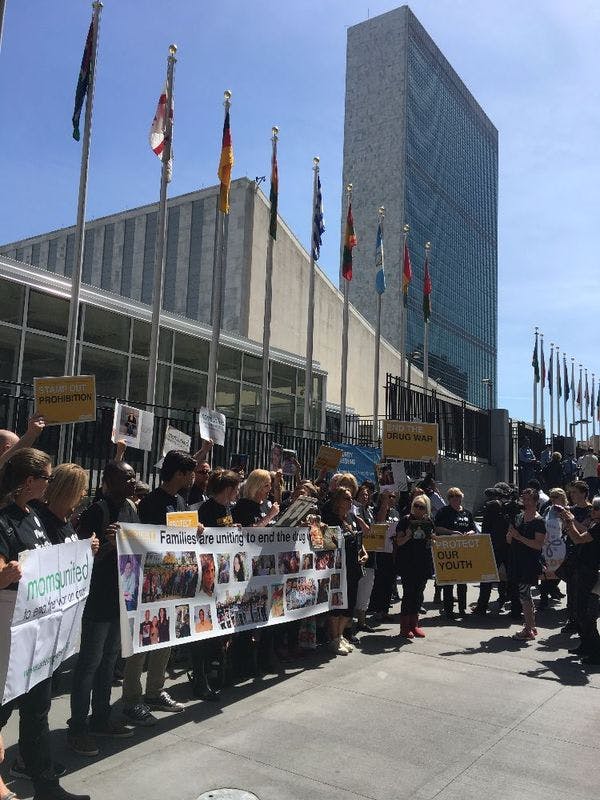Lack of progress and transparency at the UN General Assembly Special Session on drugs
By Linda Farthing - Nacla.org
“So how disappointed am I?,” Kasia Malinoska-Sempruch asked a crowd of civil society representatives that had gathered for the UN Special Session on Drug Policy (UNGASS) last week in New York. “The outcome is not ideal. But at least it advances access to pain medications for the terminally ill worldwide.”
Malinoska-Sempruch, who directs the Global Drug Policy program at the Open Society Foundations (OSF), was visibly exhausted after 18 months of civil society preparations for UNGASS. She may have put a brave face on it – at present, three quarters of the world's countries fail to provide adequate access to prescription pain medicines – but her disappointment, and the frustration and disappointment of the many who had gathered in New York for the UN meetings, was palpable.
The first meeting of UNGASS since 1998 was supposed to be a game changer in prodding the lumbering and often draconian UN drug policy regime into serious revision. Mass incarceration of the poor, corruption, human rights abuses, public health crises and violence caused by the Drug War have been exhaustingly documented all over the world. According to UN research, the negative impacts fall disproportionately on indigenous communities, people of color, women and children. Although about $100 billion is spent on counter-narcotics efforts every year, the illicit trade spirals upward with its current value estimated at between $300 billion and $500 billion a year. But in the end, the UN Special Session came up short in meeting the expectations of drug policy reformers from around the globe.
Click here to read the full article.
Keep up-to-date with drug policy developments by subscribing to the IDPC Monthly Alert.
Thumbnail: Marie Nougier, IDPC
